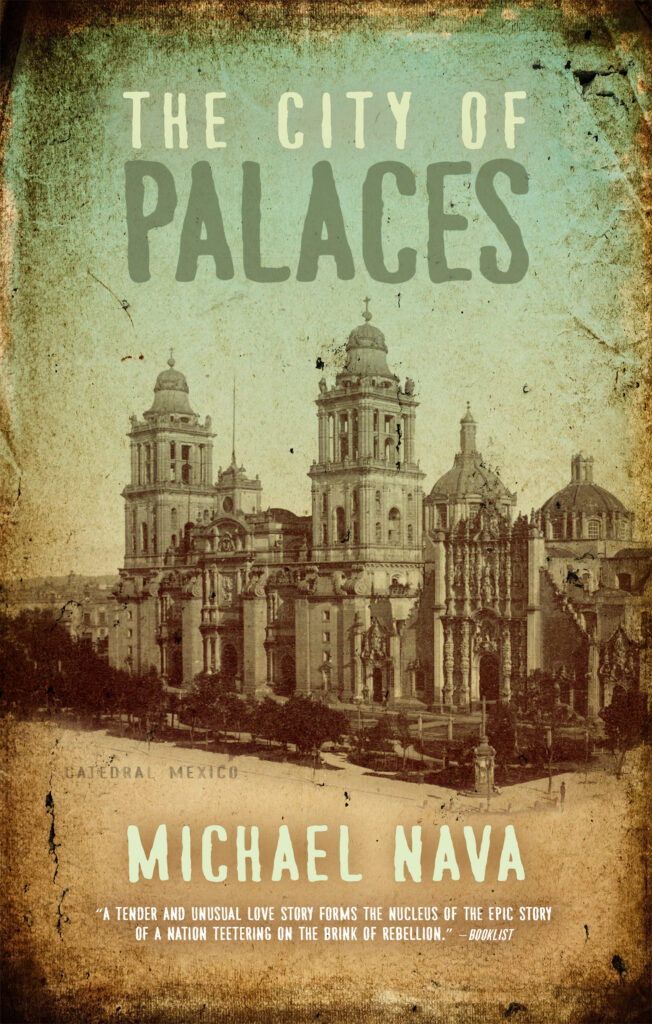
In 2020, Michael Nava, the finest Mexican American writer of any age, published The City of Palaces which was a marked departure from his mystery novels, the Henry Rios series. The City of Palaces, he stated, would be the first of a trilogy of books, loosely called Children of Eve. Perhaps, in this new year, we will receive word regarding the second book.
Palaces is a breath-taking saga posed at the beginning of the Twentieth Century when, yet another Mexican revolution sweeps through that country like the quixotic crusades of the past, promising a brighter future for the nation still struggling with the old order of social structure, religion and social customs. At the center of this political upheaval is Mexico City, the city of palaces, weighing down upon Mexico like a heavy crucifix or garrote. Caught in this political strangle hold, Dr. Miguel Sarmiento, a man of science, and his wife the devote Alicia Gavilan, a woman of the Christian (but not necessarily the Catholic) faith, try to maintain balance and raise their young child, Jose. Both main characters suffer from past generational political and social baggage that needs to be resolved with a fresh look to the new Twenty Century. Helping this couple along are a cast of fine characters. The best of these is Sarmiento’s first cousin, Jorge Luis. Through Luis’ eyes, we experience the iron clad social restrictions imposed on the gay community. Luis is caught in the police net which snared Mexico’s elite and sent all, except Luis to prison on an island where none returned. Luis alone escaped and with Sarmiento and Gavilan’s help exiles himself to Europe where he takes the time to grow up and cements his stand on being queer and social issues. He returns to Mexico a staunch supporter of Madero and becomes an experienced spymaster along with his indigenous Mexican lover.
Lacing the story line of Sarmiento and Gavilan, we see a cast of Mexican revolutionaries who float in and out of the Diaz presidency. Those revolutionaries include Pancho Villa, Emiliano Zapata, Franciso Madero, and others. All the famous revolutionaries are endowed with serious and somethings comical character traits that end in either execution or assassination.
While Dr. Sarmiento is away ministering to floundering politicians or the sick, Dona Alicia is off helping the poor and attending as many masses as possible. They leave the raising of their child, Jose to Gavilan’s mother, the legendary La Nina, a coddled and socially stunted woman living three centuries in the past. Jose is given toys and opportunities in education that would boggle a child’s mind. In his own fantasy world, which his adult keepers impose upon him, Jose experiences his first love, a music tutor who “disappears” when La Nina offers him a music scholarship in Europe.
When another revolution does precipitate, Samiento publicly supports the losing side; Gavilan takes a bullet and dies when government troops come looking for Sarmiento; and Jose and his father are forced to flee the City of Palaces. Traveling for days by train, father and son reach Douglas Arizona and safety. The pair who really know nothing about each other are a far cry from the City of Palaces. They are exiled in La Frontera; it is 1913; we are still holding our breath about what will happen next.